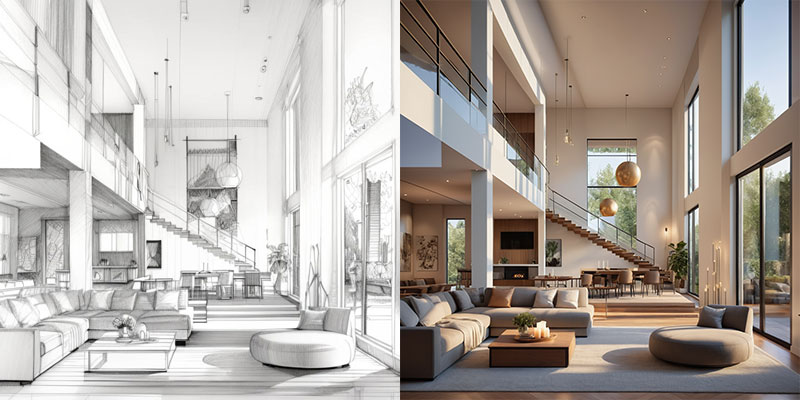Freunde einladen und für beide kostenlose Münzen erhalten

two office buildings in front of an open park
1413
art nirvana
KI Bildgenerator
v2
Located at the intersection of René-Lévesque Boulevard and Saint-Denis Street in the busy downtown area of Montreal, the latest phase of the CHUM's new hospital complex is integrated into a dense urban environment, close to the Ville-Marie Expressway, a metro station, and Montreal's cosmopolitan and historic districts.
This last phase of 70,000 m² includes a 365-seat auditorium, two connected 16- and 17-storey towers that house outpatient clinics, a library, medical archives and administrative spaces, as well as parking spaces for 850 cars and 210 bicycles and locker rooms for approximately 3,300 employees located underground.A caring environment for all occupants
The quality of the architecture has a direct impact on the quality of life of its users, on their sense of security, confidence and ultimately, their well-being. It was imperative to provide a caring environment capable of welcoming and accompanying patients, supporting them through diagnoses, treatments, follow-ups, and visits to their loved ones, and providing a pleasant and stimulating workplace for the staff who work there every day. Architecture also plays an essential role in the efficient and functional planning of the various pathways. Good space design can reduce the level of stress associated with orientation in a hospital of this magnitude by, for example, providing reception, rest and walking areas with plenty of windows, positioning exterior views at the end of corridors, or using color to differentiate care services.The evaluation of the preliminary design plans identified and understood the frequent critical linkages between different services and spaces. Units were reorganized to optimize floor space and reduce travel distances, allowing medical staff to be closer to patients. Based on the information available, on the standards in force and on our team's experience in the realization of similar projects, the design of the clinical spaces and the integrated furniture was entirely adjusted to the needs of the personnel, whether in terms of sequence of use, sensitivity of human contact, ergonomics and sturdiness, all with a view to universal accessibility, durability and sustainable development.A singular amphitheatre
With its unusual shape and its envelope made of copper panels - a noble and durable material used on the roofs of several emblematic institutional buildings in Montreal and Quebec - the Pierre-Péladeau Amphitheatre gives the project a unique character. The main auditorium, originally designed with fixed bleachers, has been redesigned to include retractable bleachers. This large multifunctional auditorium includes technological and scenographic equipment and can accommodate 365 people in its standard configuration, and nearly 150 people in cabaret mode. The building also houses up to 10 meeting rooms thanks to movable walls that allow for the division of 5 large meeting rooms, where acoustic insulation is ensured notably by the use of triple glass. real structural feat, the building's volumetry and large spans were achieved by a complex load-bearing frame and cantilevered shell and floors. Built above the underground parking lot, surrounded by a perimeter circulation path with access to the parking lot, and equipped with a full-width glass skylight on the roof, this amphitheater was the source of many functional and technical challenges and required great mastery in both design and executionThe construction of the hospital, designed by CannonDesign + NEUF architects, was planned in two phases in order to respect the functionality requirements of the CHUM and the maintenance of the operations of the Saint-Luc Hospital during the construction of the south pavilion, which was put into service in the fall of 2017. The finalization of the design, the execution of the plans and specifications as well as the supervision of the works of the last phase, which includes the demolition of the Saint-Luc Hospital and the construction of the North Pavilion and the auditorium building, was accomplished by Jodoin Lamarre Pratte architectes in consortium with MSDL Architects.
The entire complex is aiming for LEED Silver certification.
Stil:
Fotografie-Architekturrealismus
Szene:
Auf der Wiese auf dem Land,Im Wald
Perspektive:
Ultra-Weitwinkelobjektiv für sehr lange Distanzen
Verhältnis:
16:9
Beleuchtung:
Transluzenz
0
Remix
0
Gefällt mirBisher keine Kommentare
Mehr ähnliche Inhalte
two office buildings in front of an open park
1413
art nirvana
KI Bildgenerator
v2
Located at the intersection of René-Lévesque Boulevard and Saint-Denis Street in the busy downtown area of Montreal, the latest phase of the CHUM's new hospital complex is integrated into a dense urban environment, close to the Ville-Marie Expressway, a metro station, and Montreal's cosmopolitan and historic districts.
This last phase of 70,000 m² includes a 365-seat auditorium, two connected 16- and 17-storey towers that house outpatient clinics, a library, medical archives and administrative spaces, as well as parking spaces for 850 cars and 210 bicycles and locker rooms for approximately 3,300 employees located underground.A caring environment for all occupants
The quality of the architecture has a direct impact on the quality of life of its users, on their sense of security, confidence and ultimately, their well-being. It was imperative to provide a caring environment capable of welcoming and accompanying patients, supporting them through diagnoses, treatments, follow-ups, and visits to their loved ones, and providing a pleasant and stimulating workplace for the staff who work there every day. Architecture also plays an essential role in the efficient and functional planning of the various pathways. Good space design can reduce the level of stress associated with orientation in a hospital of this magnitude by, for example, providing reception, rest and walking areas with plenty of windows, positioning exterior views at the end of corridors, or using color to differentiate care services.The evaluation of the preliminary design plans identified and understood the frequent critical linkages between different services and spaces. Units were reorganized to optimize floor space and reduce travel distances, allowing medical staff to be closer to patients. Based on the information available, on the standards in force and on our team's experience in the realization of similar projects, the design of the clinical spaces and the integrated furniture was entirely adjusted to the needs of the personnel, whether in terms of sequence of use, sensitivity of human contact, ergonomics and sturdiness, all with a view to universal accessibility, durability and sustainable development.A singular amphitheatre
With its unusual shape and its envelope made of copper panels - a noble and durable material used on the roofs of several emblematic institutional buildings in Montreal and Quebec - the Pierre-Péladeau Amphitheatre gives the project a unique character. The main auditorium, originally designed with fixed bleachers, has been redesigned to include retractable bleachers. This large multifunctional auditorium includes technological and scenographic equipment and can accommodate 365 people in its standard configuration, and nearly 150 people in cabaret mode. The building also houses up to 10 meeting rooms thanks to movable walls that allow for the division of 5 large meeting rooms, where acoustic insulation is ensured notably by the use of triple glass. real structural feat, the building's volumetry and large spans were achieved by a complex load-bearing frame and cantilevered shell and floors. Built above the underground parking lot, surrounded by a perimeter circulation path with access to the parking lot, and equipped with a full-width glass skylight on the roof, this amphitheater was the source of many functional and technical challenges and required great mastery in both design and executionThe construction of the hospital, designed by CannonDesign + NEUF architects, was planned in two phases in order to respect the functionality requirements of the CHUM and the maintenance of the operations of the Saint-Luc Hospital during the construction of the south pavilion, which was put into service in the fall of 2017. The finalization of the design, the execution of the plans and specifications as well as the supervision of the works of the last phase, which includes the demolition of the Saint-Luc Hospital and the construction of the North Pavilion and the auditorium building, was accomplished by Jodoin Lamarre Pratte architectes in consortium with MSDL Architects.
The entire complex is aiming for LEED Silver certification.
Stil:
Fotografie-Architekturrealismus
Szene:
Auf der Wiese auf dem Land,Im Wald
Perspektive:
Ultra-Weitwinkelobjektiv für sehr lange Distanzen
Verhältnis:
16:9
Beleuchtung:
Transluzenz
0
Remix
0
Gefällt mirBisher keine Kommentare



























